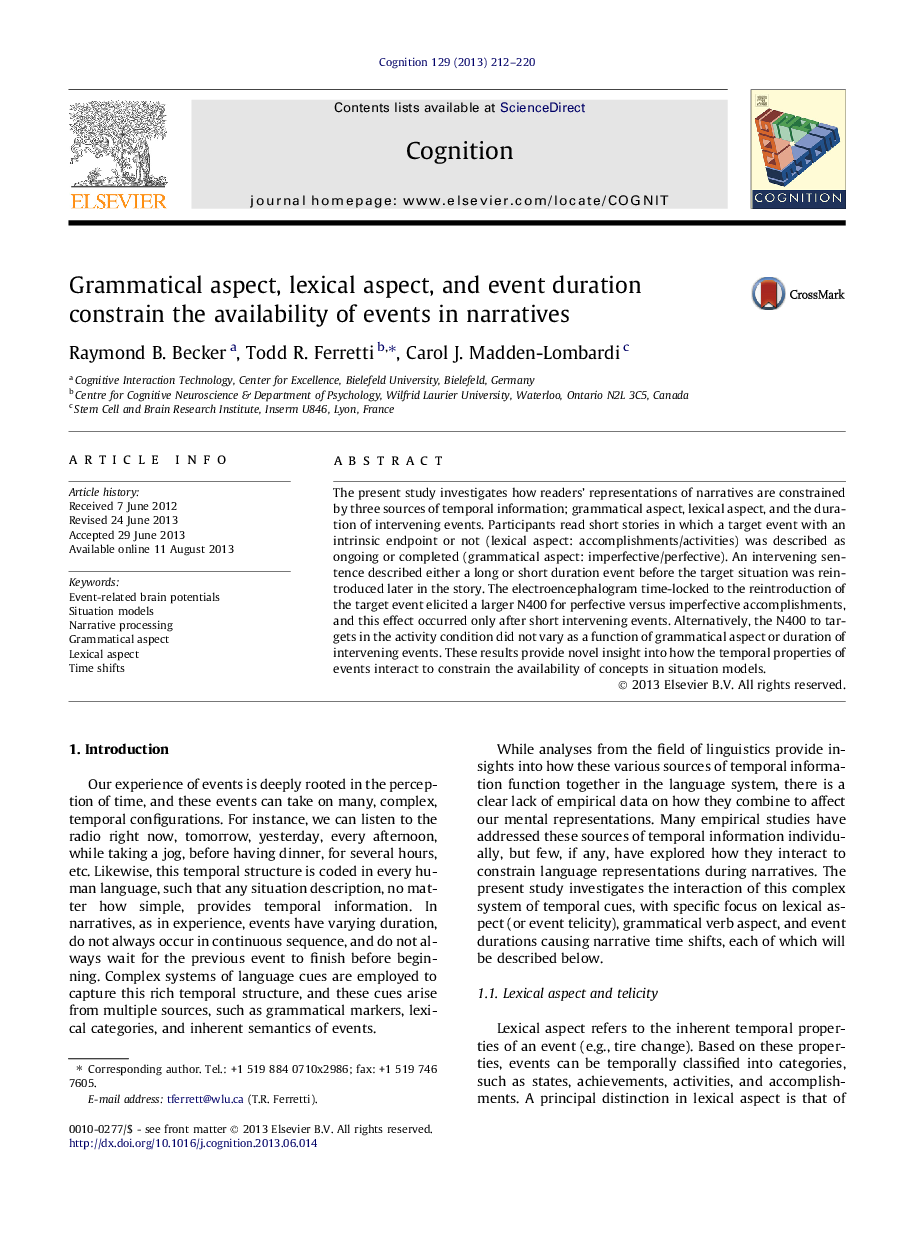| Article ID | Journal | Published Year | Pages | File Type |
|---|---|---|---|---|
| 926379 | Cognition | 2013 | 9 Pages |
•Temporal information constrains the availability of discourse concepts.•Imperfective aspect enhanced availability of discourse concepts.•Imperfective availability advantage was only found for accomplishments.•Imperfective advantage for accomplishments was only found after short time shifts.
The present study investigates how readers’ representations of narratives are constrained by three sources of temporal information; grammatical aspect, lexical aspect, and the duration of intervening events. Participants read short stories in which a target event with an intrinsic endpoint or not (lexical aspect: accomplishments/activities) was described as ongoing or completed (grammatical aspect: imperfective/perfective). An intervening sentence described either a long or short duration event before the target situation was reintroduced later in the story. The electroencephalogram time-locked to the reintroduction of the target event elicited a larger N400 for perfective versus imperfective accomplishments, and this effect occurred only after short intervening events. Alternatively, the N400 to targets in the activity condition did not vary as a function of grammatical aspect or duration of intervening events. These results provide novel insight into how the temporal properties of events interact to constrain the availability of concepts in situation models.
